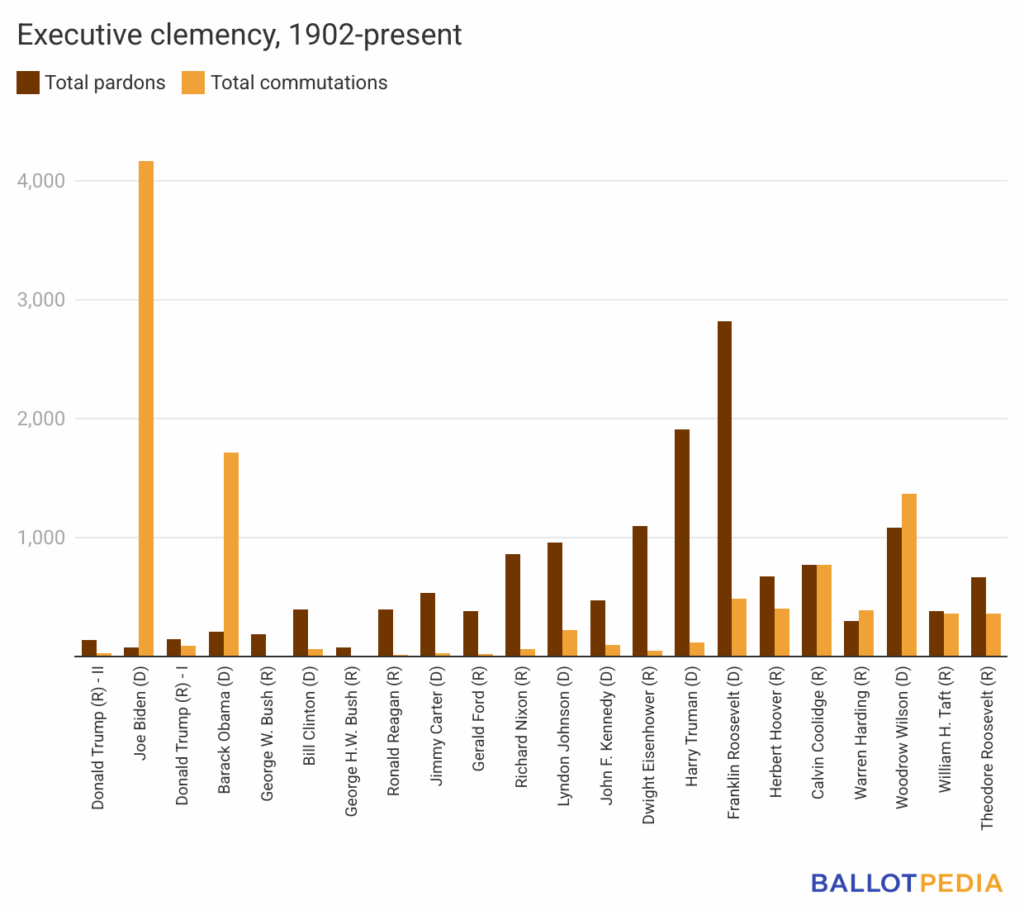As of Nov. 9, 2025, President Donald Trump (R) has issued a total of 142 pardons during his second term, which is one less than he issued throughout the entirety of his first term (143). Additionally, Trump has issued 28 commutations during his second term. See the chart below for executive clemency figures from 1902 to the present.

These figures do not include individuals unnamed in mass pardons, of which Trump has issued two so far in his second term. On his first day in office, Trump issued a mass pardon to individuals who were convicted of offenses related to the breach of the U.S. Capitol on Jan. 6, 2021, which included at least 1,500 individuals, according to the Associated Press.
On Nov. 7, according to U.S. Pardon Attorney Ed Martin, Trump issued a mass pardon to individuals for conduct related to support for “any slate or proposed slate of Presidential electors, whether or not recognized by any State or State official” during the 2020 presidential election, and for "any conduct relating to their efforts to expose voting fraud and vulnerabilities” in the 2020 presidential election. In addition to the mass pardon, Trump named 77 people to whom the pardon would apply, including Trump’s former lawyer Rudy Giuliani, Trump’s former chief of staff Mark Meadows, and attorneys Sidney Powell, Jenna Ellis, Kenneth Chesebro, and John Eastman. The pardon document notes that it does not apply to Trump himself.
The U.S. Constitution, in Article II, Section 2, grants the president the power of executive clemency. Executive clemency includes the power to pardon, in which the president overturns a federal conviction and restores “an individual to the state of innocence that existed before the conviction.” Executive clemency also includes the power of commutation, which allows a president to shorten or reduce a federal prison sentence. The Constitution imposes two major limits on the power of executive clemency. The first is that clemency is limited to federal offenses. The president cannot pardon individuals for civil or state offenses. The second is that the president may not use this power to intervene in impeachment proceedings.
As of Nov. 9, 2025, the annual average number of pardons was 118.3, while the annual average number of commutations was 88.1. Between fiscal years 1902 and 2025, Franklin Roosevelt (D) issued, on average, more pardons than any other president (234.9 per year). During this timeframe, Lyndon Johnson (D) was the only president to issue no pardons or commutations during his final fiscal year in office.


